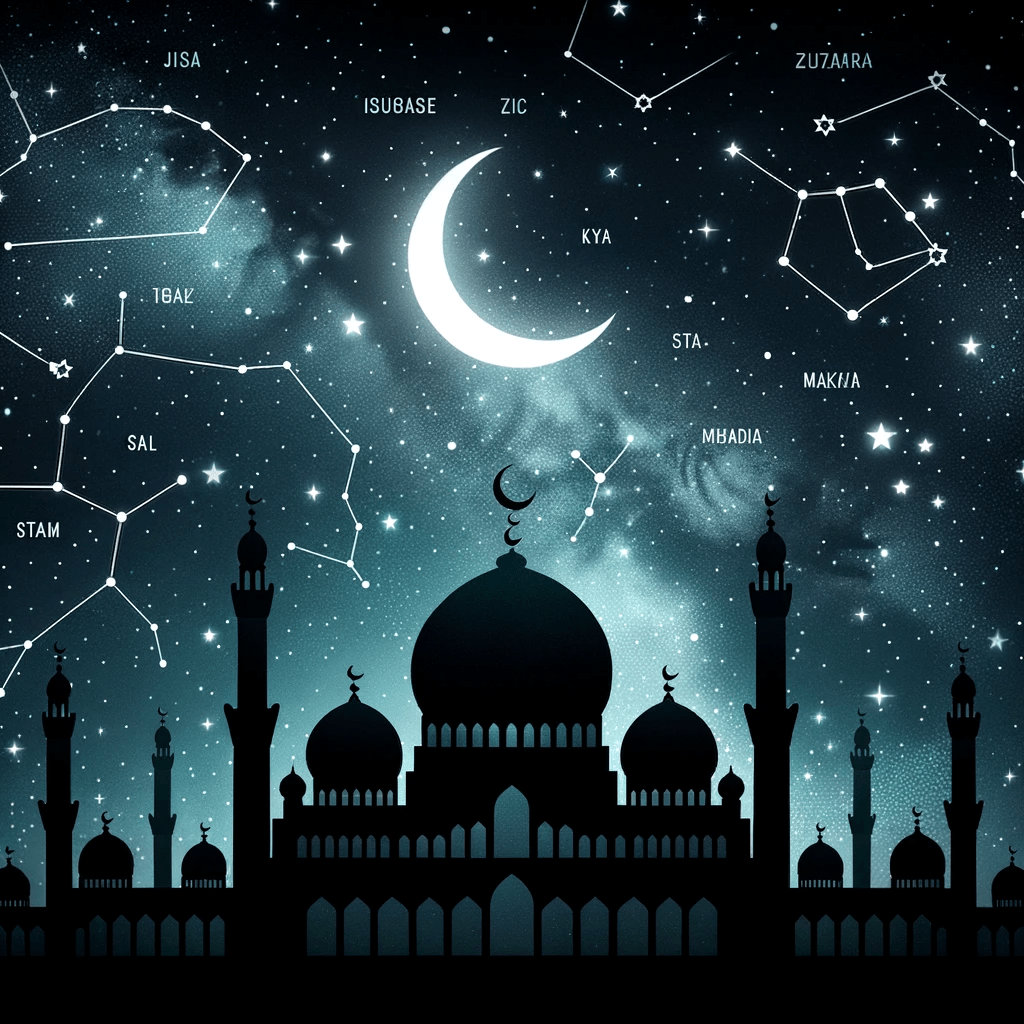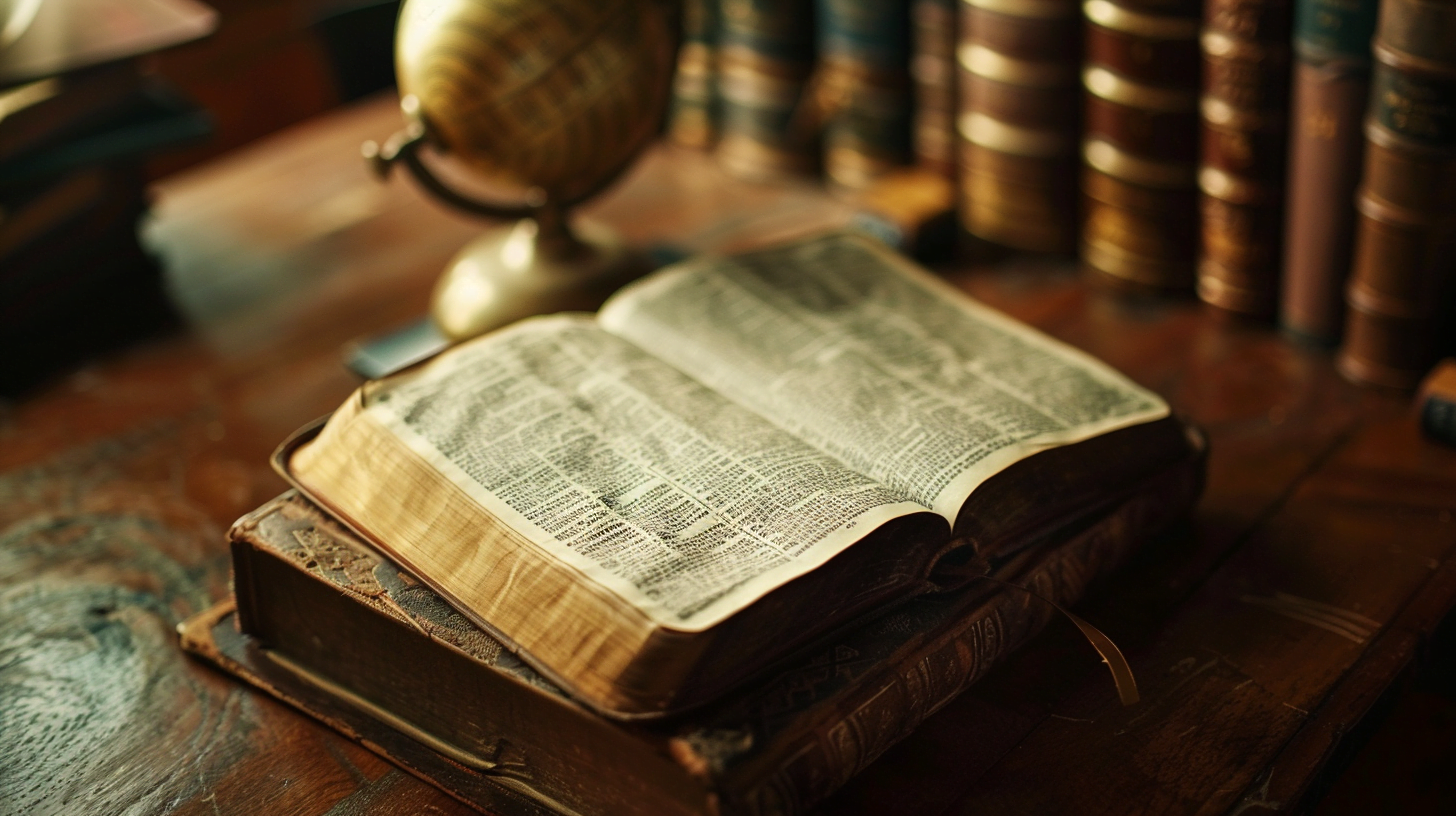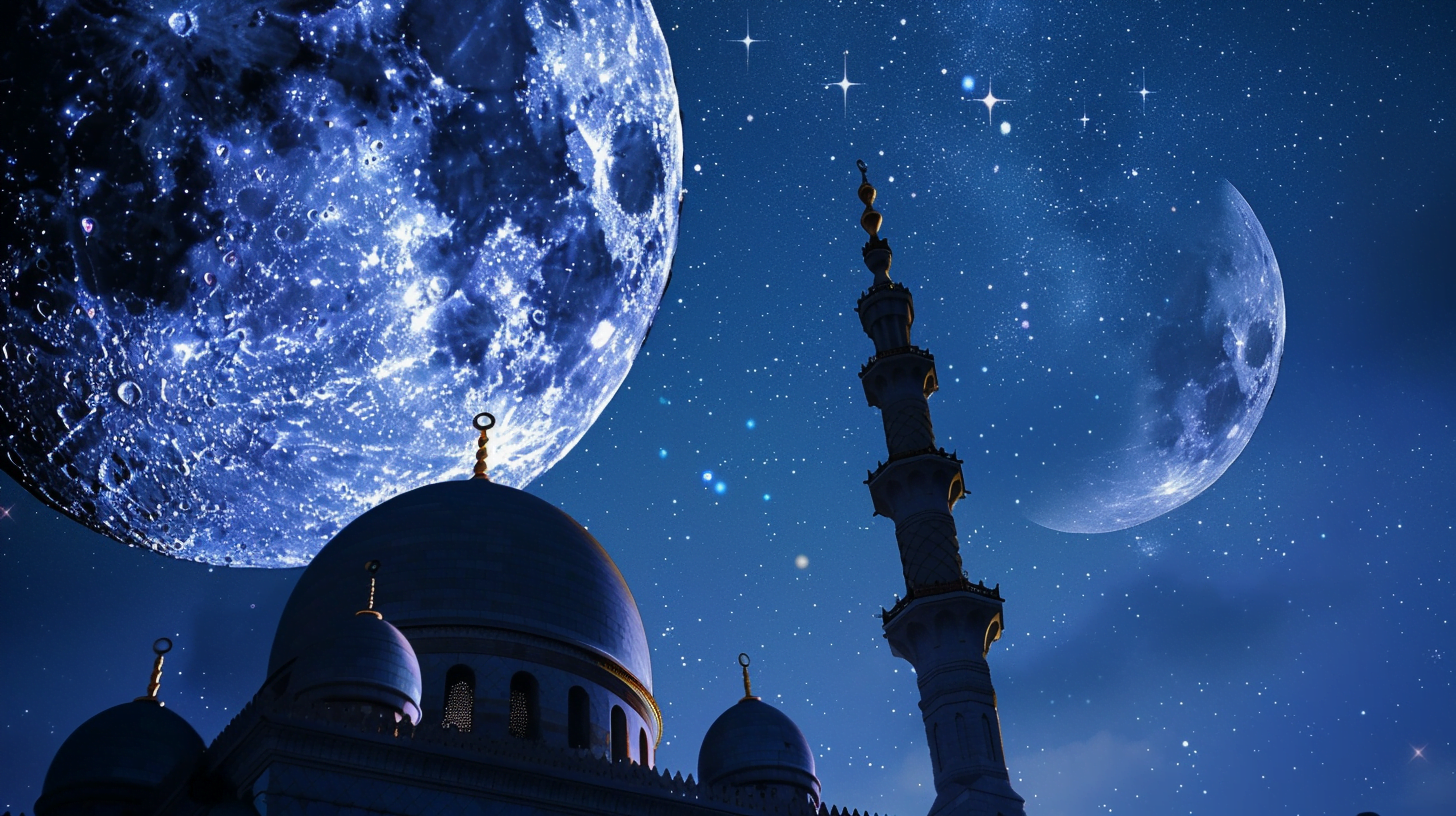Astrology, a practice that explores the relationships between celestial bodies and human life, has captivated the imaginations of people throughout history. However, the extent to which different religious and cultural communities embrace astrology varies considerably. In this article, we examine the intriguing question: do Muslims believe in astrology? Delving into the realm of Islamic teachings and beliefs, we seek to shed light on the intersection between this ancient practice and the faith of over 1.8 billion Muslims worldwide. By exploring the significance of astrology and the role it plays within the Islamic community, we aim to provide a comprehensive understanding of this fascinating topic.
The Concept of Astrology in Islam
Astrology, the belief that celestial bodies can influence human behavior and destiny, has been a topic of discussion and controversy in many religious and cultural contexts. In Islam, the concept of astrology holds varying interpretations and views among its followers. This article aims to provide a comprehensive understanding of the Islamic perspective on astrology by analyzing Islamic views, the prohibition of astrology, the relationship between astrology and Islamic beliefs, and the influence of cultural practices on the perception of astrology within the Muslim community.
Islamic Views on Astrology
Islamic views on astrology are diverse and multifaceted, ranging from complete acceptance to outright rejection. Some Muslims perceive astrology as a valid scientific discipline that can be used to determine one’s character traits and future prospects. They argue that Prophet Muhammad himself acknowledged the existence of astrological phenomena and mentioned them on certain occasions. However, it is essential to acknowledge that these references are often based on weak or fabricated Hadiths, making their authenticity questionable.
On the other hand, mainstream Islamic scholars generally express a more cautious approach towards astrology. They argue that the practice of astrology contradicts the teachings of Islam, as it implies attributing divine powers to celestial bodies instead of recognizing Allah as the ultimate source of all events and destiny. Islamic teachings emphasize the belief in the sovereignty of Allah and the concept of free will, which may appear incompatible with the concept of astrology.
Prohibition of Astrology in Islam
The prohibition of astrology in Islam is rooted in various sources, including the Qur’an and Hadiths. In the Qur’an, Allah explicitly denounces those who claim knowledge of the unseen or try to predict the future through astrological practices. The Qur’an states, “Indeed, with Allah alone is the knowledge of the Hour, and He sends down rain, and knows what is in the wombs. And no soul perceives what it will earn tomorrow, and no soul perceives in what land it will die. Indeed, Allah is Knowing and Acquainted” (Qur’an 31:34).
Moreover, numerous Hadiths attributed to Prophet Muhammad clarify the Islamic position on astrology. The Prophet warned against the belief in astrology, stating that anyone seeking information about their fate or future from astrologers has disbelieved in what was revealed to Prophet Muhammad (Hadiths collected by Imam Abu Dawud). These teachings reinforce the Islamic stance against relying on celestial bodies for determining one’s destiny.
Astrology vs Islamic Beliefs
Astrology and Islamic beliefs differ fundamentally in their understanding of destiny and the role of celestial bodies. Islam teaches that Allah has given human beings free will and the ability to make choices that shape their destiny. Rather than attributing events and behaviors to the positions of stars and planets, Islam emphasizes personal responsibility and accountability.
Astrology, on the other hand, assigns great significance to celestial bodies in determining human characteristics and predicting future outcomes. It suggests that an individual’s destiny is predetermined, limiting their ability to shape their own fate. This contradicts the Islamic belief in qadr (fate) as a combination of divine decree and human agency, guided by Allah’s infinite wisdom.
The Influence of Cultural Practices
Islamic beliefs and interpretations vary among different cultures and regions. This cultural diversity creates variations in attitudes towards astrology within the Muslim community. Astrological practices in Muslim majority countries demonstrate the influence of cultural traditions that predate Islam’s arrival.
In many instances, Islamic teachings have merged with pre-existing cultural practices, resulting in unique interpretations and applications. For instance, some Muslims incorporate astrology into matchmaking and wedding rituals, considering the alignment of stars and planets in determining marital compatibility. However, it should be noted that these practices do not have a foundation in authentic Islamic teachings and are more reflective of cultural traditions.
Cultural Variations in Islamic Beliefs
Cultural variations play a significant role in shaping the understanding and acceptance of astrology among Muslims. For instance, in South Asian cultures, astrological beliefs are deeply ingrained in societal norms. Many individuals consult astrologers and adhere to astrological predictions when making important life decisions. While this cultural acceptance may be perceived as a belief in astrology itself, it primarily stems from cultural influence rather than being grounded in Islamic teachings.
Contrastingly, in countries with a more conservative Islamic outlook, astrology is generally discouraged. Saudi Arabia, for example, has strict regulations against astrological practices, citing their incompatibility with Islamic values.
Astrological Practices in Muslim Majority Countries
In some Muslim majority countries, astrological practices are not entirely absent from societal activities. However, it is essential to distinguish between cultural practices and genuine Islamic beliefs. The popularity of astrology in these regions is often a result of cultural customs or a longing for spirituality rather than a direct endorsement of astrological principles by Islamic authorities.
Countries like Iran, where Persian traditions hold significant influence, demonstrate a mixed approach towards astrology. Ancient Persian astrology has deeply influenced the region’s cultural practices, even manifesting in national celebrations and public holidays. Such instances of cultural assimilation blur the lines between astrology and Islamic beliefs, resulting in complex attitudes towards this subject.
Islamic Teachings on Determinism
Belief in predestination, known as qadr in Islam, serves as a critical element in understanding Islamic teachings on the concept of astrology. The Qur’an clearly states that Allah has knowledge of everything, and all events occur according to His divine plan. This belief does not imply that human beings are mere passive recipients of their fate. Instead, it emphasizes the coexistence of divine decree and individual choice.
Belief in Predestination
Islamic teachings emphasize that Allah has decreed everything that is to occur in the universe. However, this does not negate the role of human agency, as individuals are blessed with free will and are accountable for their actions. Islam encourages Muslims to make informed choices while relying on Allah’s guidance and trust in His divine wisdom.
Understanding Qadr (Fate) in Islam
Qadr is an integral concept in Islam, as it acknowledges that everything in the universe happens by Allah’s decree. Muslims believe that Allah, in His infinite knowledge, has predetermined the course of events yet has also given humans the ability to make choices. This belief in qadr creates a balance between acknowledging divine control and understanding human agency, setting it apart from the deterministic principles often associated with astrology.
Arguments Against Astrology
Islamic scholars who reject astrology put forth various arguments to emphasize its incompatibility with Islamic beliefs. Three primary arguments against astrology include its incompatibility with monotheism, reliance on superstition, and the lack of scientific validity.
Incompatibility with Monotheism
Astrology implies attributing divine powers to celestial bodies, diverting the belief and worship of Allah as the sole creator and sustainer of the universe. Islamic monotheism strictly opposes any form of polytheism or association of partners with Allah, making astrology incompatible with this fundamental Islamic belief.
Reliance on Superstition
Scholars who oppose astrology argue that it relies heavily on superstitious practices, such as reading horoscopes and attributing personal traits to zodiac signs. This emphasis on superstition contradicts the Islamic teachings of seeking knowledge through rationality, intellect, and authentic sources of knowledge.
Lack of Scientific Validity
Astrology lacks the scientific validity required to be considered a legitimate field of study. Islamic scholars highlight the importance of relying on empirical evidence and scientific inquiry. They argue that astrology’s reliance on subjective interpretations and generalizations compromises its credibility as a scientific discipline.
Interpretations and Exceptions
While the majority of Islamic scholars and authorities reject astrology, there are some diverse interpretations within Islamic scholarship. Some scholars make exceptions and justify limited engagement with astrology in specific contexts.
Diverse Interpretations within Islamic Scholarship
Islamic history demonstrates a range of opinions regarding astrology. Some renowned scholars like Al-Biruni and Ibn Arabi expressed views that allowed for the study of astrology under certain conditions. However, these interpretations remain a minority among the wider Islamic scholarly consensus.
Exception for Mundane Matters
A limited number of Islamic scholars permit the use of astrology for mundane matters that are not related to determining one’s fate. For example, consulting astrological charts for agricultural purposes or navigating through unfamiliar territories is seen as an exception. However, this exception does not imply an endorsement of astrology in its entirety, as astrology’s core principles of determining fate and individual characteristics remain incompatible with Islamic beliefs.
Justifying Cultural Practices
Another aspect to consider when discussing astrology within Islam is the influence of cultural practices. Some cultural traditions have ingrained astrological practices into their customs over time. Muslims who engage in these practices often view them as harmless cultural activities rather than subscribing to astrological beliefs rooted in Islamic theology. It is essential to differentiate these cultural practices from genuine Islamic beliefs.
Astrology in Islamic History
The historical relationship between Islam and astrology can be traced back to the early Islamic period. During this time, Islamic scholars displayed a more lenient approach towards the study of astrology, incorporating elements of Persian and Indian traditions.
Astrology in Early Islamic Period
The early Islamic period witnessed substantial interactions between Muslim scholars and those from other civilizations. This exchange of knowledge resulted in the translation and preservation of various ancient texts, including those on astrology. While astrology gained some recognition, it was often viewed with skepticism by Islamic scholars, who emphasized distinguishing between elements of astrology that aligned with Islamic teachings and those that contradicted them.
Influence of Persian and Indian Traditions
Persian and Indian traditions significantly influenced Islamic astrology during the medieval period. Persian astrological practices, known as Ilm al-Hay’a, intertwined with Islamic teachings, shaping approaches to astrology in regions where Persian culture held sway. Similarly, Indian astrological concepts, such as understanding the influence of celestial bodies on human lives, found their way into Islamic astrology.
Reaction and Suppression of Astrology
While Islamic scholars throughout history displayed varying attitudes towards astrology, a significant turning point occurred during the Abbasid caliphate with the rise of rational thought and scientific inquiry. Scholars like Al-Farabi and Ibn Rushd (Averroes) engaged in critical analysis of astrology and debunked its claims, calling for a separation between astrology and Islamic teachings. This critical scrutiny of astrology within the Islamic framework led to its eventual suppression, and Islamic societies shifted their focus towards sciences like astronomy that were based on empirical evidence and rationality.
Misconceptions and Stereotypes
The perception of astrology within Islam has been subject to misrepresentation and stereotypes, often perpetuated by misinformation and media portrayal. It is crucial to clarify these misconceptions and present a more accurate understanding of the Islamic perspective on astrology.
Misrepresentation of Muslim Beliefs
Astrology is sometimes incorrectly attributed to Islam as a part of its religious teachings. This misrepresentation stems from a lack of understanding and the appropriation of cultural practices as religious beliefs. It is important to recognize that astrology is not an integral part of Islamic theology, and the majority of Muslims do not endorse or engage in astrological practices.
Media Portrayal and Generalizations
Media portrayals of Muslims and Islamic beliefs frequently perpetuate stereotypes and misinformation regarding their attitudes towards astrology. Some media platforms may sensationalize cultural practices by presenting them as representative of Islamic beliefs as a whole. This misrepresentation further fuels misunderstandings and prevents an accurate understanding of astrology within the Islamic context.
Alternative Approaches to Astrology
While astrology remains contested within Islam, alternative approaches have emerged that align more closely with Islamic teachings. These approaches emphasize Islamic astronomy, seeking guidance from Islamic scholars, and relying on prayer and trust in God.
Islamic Astronomy
Islamic astronomy, as opposed to astrology, centers around the scientific study of celestial bodies without attributing them with divinity or influence over human lives. Islamic astronomers throughout history have made significant contributions to astronomy, developing instruments and creating accurate calculations for lunar and solar movements. This approach provides a scientifically grounded understanding of the cosmos while respecting Islamic monotheistic principles.
Seeking Guidance from Scholars
Muslims who encounter astrological dilemmas or uncertainties are encouraged to seek guidance from qualified Islamic scholars. Scholars have a comprehensive understanding of Islamic teachings and can provide tailored advice in light of individual circumstances. Consulting scholars can help individuals navigate between cultural practices and genuine Islamic beliefs, providing clarity and guidance based on Islamic teachings.
Relying on Prayer and Trust in God
When faced with uncertain circumstances, Muslims turn towards prayer and placing their trust in Allah’s wisdom and divine plan. Rather than seeking answers through astrological practices, Muslims believe in seeking supplication and guidance from Allah through prayer, cultivating a sense of spiritual connection and reliance on divine assistance.
Astrology Among Muslims Today
The belief in astrology among Muslims today varies significantly according to individual beliefs and cultural influences. While the majority of devout Muslims reject astrology due to its theological conflicts, certain cultural practices may still incorporate astrological elements without necessarily subscribing to astrological beliefs.
Individual Beliefs and Practices
Muslims’ personal beliefs about astrology range from complete rejection to partial acceptance, depending on their interpretations of Islamic teachings. Some individuals may engage in astrology out of cultural habit or curiosity while acknowledging that it does not align with their religious beliefs. Others may strictly adhere to Islamic teachings and abstain from any astrological practices altogether.
Secularization and Changing Attitudes
In recent years, secularization trends have influenced attitudes towards astrology among Muslims. As societies become more secular and religious influence diminishes, some individuals may be more open to astrology and adopt it as a personal belief system. However, it is important to recognize that these changing attitudes do not necessarily reflect the authentic Islamic perspective, but rather a shift in individual beliefs influenced by cultural and societal factors.
Conclusion
The concept of astrology within Islam is complex and multifaceted, with varying views and interpretations. While many devout Muslims reject astrology due to its incompatibility with Islamic beliefs, cultural practices and historical influences can lead to diverse approaches and perceptions within the Muslim community. It is crucial to differentiate between genuine Islamic beliefs and cultural traditions when examining astrology among Muslims. Islamic teachings on determinism, the prohibition of astrology, and arguments against its compatibility with monotheism highlight its divisive nature within the Islamic worldview. Alternative approaches, such as Islamic astronomy and seeking guidance from scholars, offer avenues for Muslims to explore cosmological interests while staying grounded in their religious convictions. Understanding the nuanced and diverse perspectives within Islam is essential to foster accurate representation and facilitate open dialogue on astrology in the context of Islamic beliefs and practices.



